The English of Savitri (Volume 12)
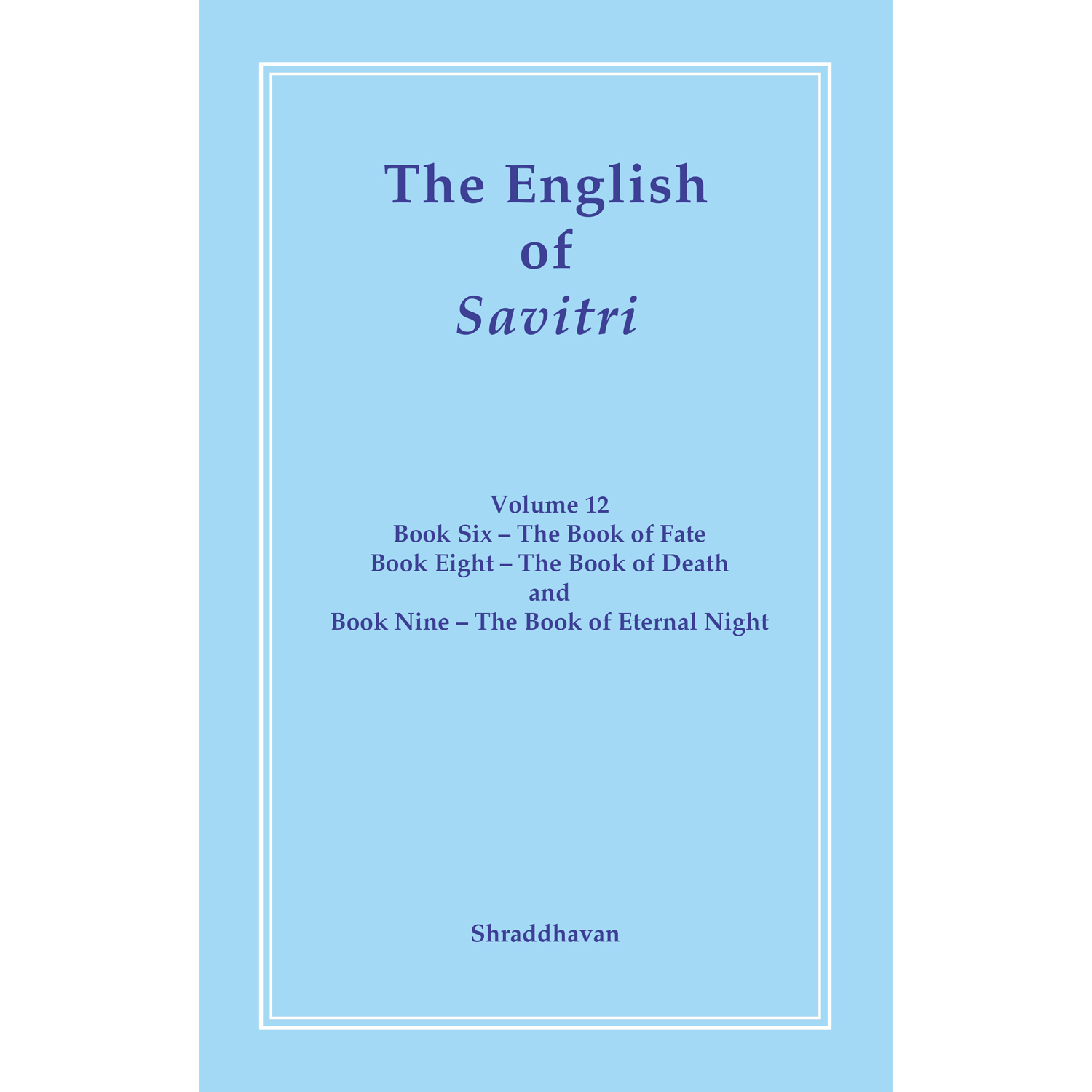

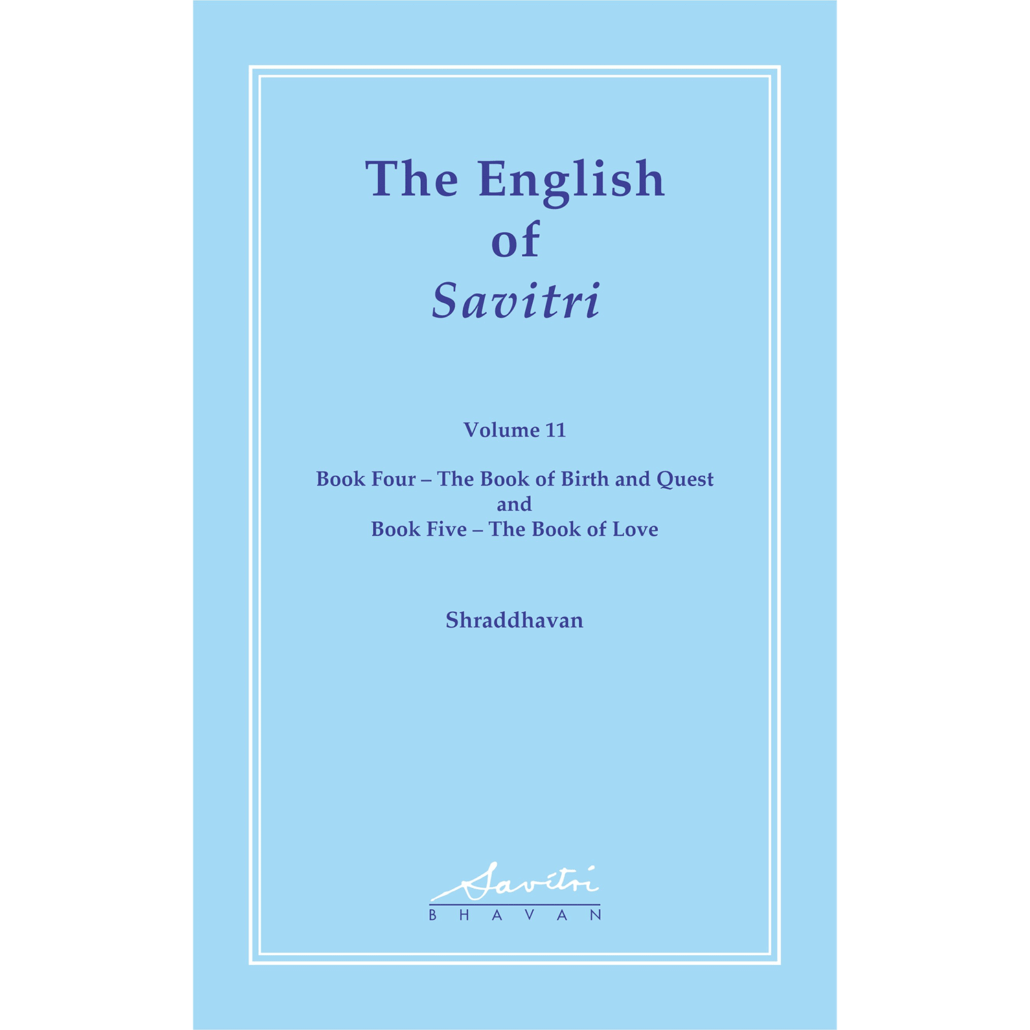
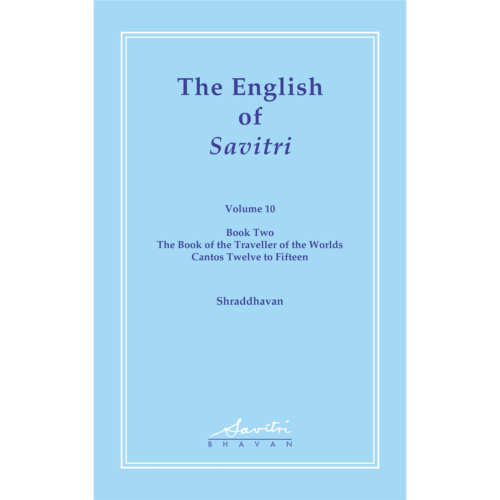
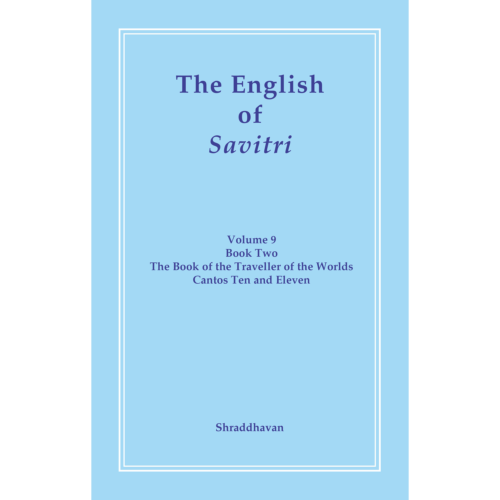
This is the Ninth Volume of the English of Savitri series. Like the previous books in this series, this one too is based on transcripts of classes held by the author at Savitri Bhavan, in this case from March to September 2020. The transcripts have been carefully revised and edited for conciseness and clarity, while aiming to preserve the informal atmosphere of the course. This Ninth Volume covers Cantos Ten and Eleven of Book Two of Sri Aurobindo’s epic, Savitri – A Legend and a Symbol. Each sentence of these cantos is examined closely and explanations are given about vocabulary, sentence-structure and imagery. The aim is to assist understanding of the poem which the Mother has characterised as ‘the supreme revelation of Sri Aurobindo’s vision.’
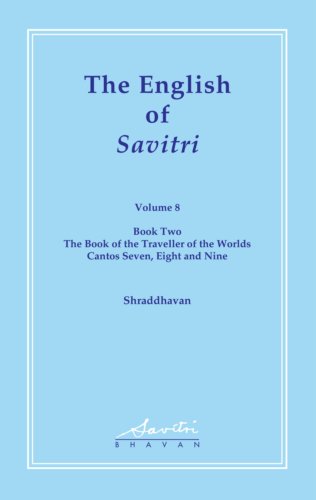
This is the Eighth Volume of the English of Savitri series, based on transcripts of classes led by the author at Savitri Bhavan, in this case from 29 March to 3 May 2012 and from 12 September 2019 to 27 February 2020. The transcripts have been carefully revised and edited for conciseness and clarity, while aiming to preserve the informal atmosphere of the courses. This volume contains detailed explanations of the texts of three cantos of Book Two of Sri Aurobindo’s epic, namely Canto Seven, The Descent into Night, Canto Eight, The World of Falsehood, the Mother of Evil and the Sons of Darkness, and Canto Nine, The Paradise of the Life-Gods. Each sentence is examined closely and explanations are given about vocabulary, sentence- structure and imagery. The aim is to assist a deeper understanding and appreciation of the poem which the Mother has characterised as ‘the supreme revelation of Sri Aurobindo’s vision’.
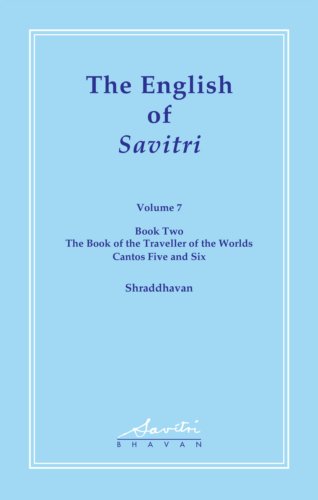
Like the previous books in this series, this one too is based on transcripts of classes held by the author at Savitri Bhavan, in this case from August 2011 to March 2012. The transcripts have been carefully revised and edited for conciseness and clarity, while aiming to preserve the informal atmosphere of the course. This Seventh Volume covers Cantos Five and Six of Book Two of Sri Aurobindo’s epic, Savitri – A Legend and a Symbol. Each sentence of these cantos is examined closely and explanations are given about vocabulary, sentence-structure and imagery. The aim is to assist understanding of the poem which the Mother has characterised as ‘the supreme revelation of Sri Aurobindo’s vision’.
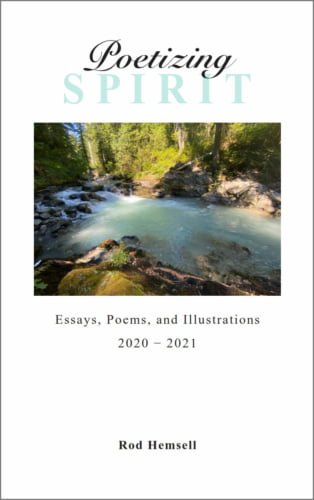
In poetry of the highest inspiration we may hear resonances of ideas that inspire in us the memory and vision of truths innate to our souls and minds, that make us think and see, beyond the normal range of intellectual knowledge. Both Sri Aurobindo, known as the great synthesizer of “eastern” and “western” thought, and Martin Heidegger, one of the most influential “postmodern” thinkers, heard those streams that flow from the great rivers of ancient myth, philosophy, mysticism and poetry. And both foresaw the advent of a new consciousness and a new type of human being. Written during the first COVID year, this booklet of reflections on some of their most inspired thoughts may open the reader to that subtle realm of intuitive vision where the spirit of poetry echoes in the riverbed of Time.
Author: Rod Hemsell
Print Length: 88
Publisher: Auro e-Books
Contributor: Edith Stadig
Book format: Pdf
Language: English
Read more
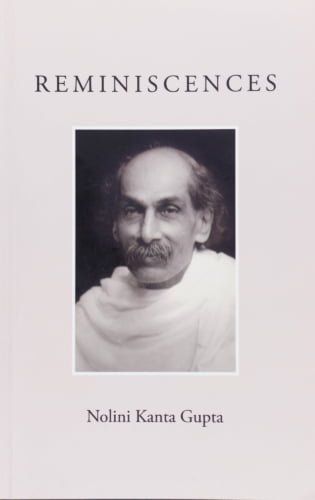
In these reminiscences, Nolini Kanta Gupta recounts the highlights of his eventful life — his transition from student to revolutionary to a disciple of Sri Aurobindo and the Mother. The memoirs first appeared in English translation in 1969 under the title Reminiscences.
Author: Nolini Kanta Gupta
Print Length: 198 pages
Publisher: Sri Aurobindo Ashram
Book format: PDF, ePub, Kindle
Language: English Read more
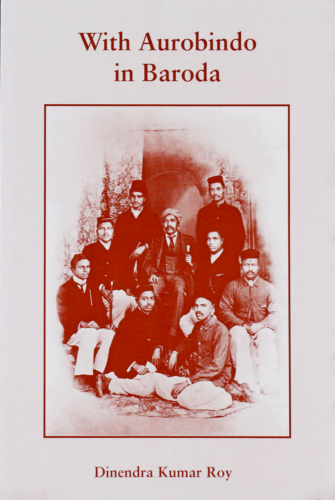
This is the first English translation of Aurobindo Prasanga (literally, “About Aurobindo”), a memoir by Dinendra Kumar Roy (1869-1943). A Bengali writer who was fairly well known during the first half of the last century, Dinendra Kumar lived with Sri Aurobindo in Baroda from 1898 to 1900 or 1901. The chapters making up this work first appeared in the journal Sahitya in Bengali year 1318 (1911-1912). More than a decade later, in 1923, they were brought out as a book. Some of Dinendra Kumar’s references to historical and literary figures are explained in editorial notes at the end of the translation.
Author: Dinendra Kumar Roy
Print Length: 45 pages
Publisher: Sri Aurobindo Ashram
Book format: PDF, ePub, Kindle
Language: English Read more
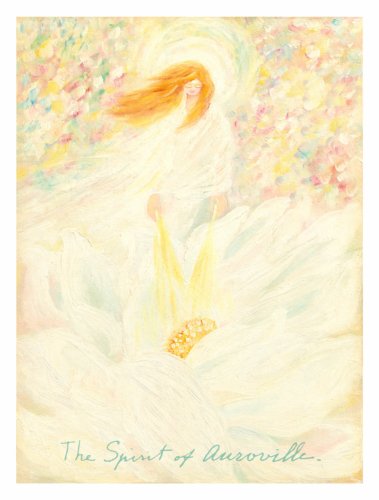
你说黎明之城是一个梦想。是的,它是“神”的一个“梦想”。通常这些“梦想”都会成真,比人类所谓的现实更加真实得多!
本书内容选自室利·阿罗频多和母亲的作品。您可以在参观“走进黎明之城图文展”时对应展板底部标注的序号阅读这些文字。展览所在地:黎明之城访客中心咨询处旁。
如果您想要更全面深入地认识黎明之城,阅读室利·阿罗频多和母亲的简介与作品,请看本书最后一页的参考资料。
英文内容和图片、小标题、排版:Olivier Barot
中文翻译:清宁 校对:倪慧
You say that Auroville is a dream. Yes, it is a “dream” of the Lord and generally, these “dreams” turn out to be true, much more true than the human so-called realities!
Texts in this book are selected from the works of Sri Aurobindo and The Mother. You can read the book while visiting the exhibition “The Spirit of Auroville” by following the serial numbers marked at the bottom of the exhibition panels. Exhibition Venue: Auroville Visitor’s Centre, next to the Information office.
Author: the Mother
English text and picture selection: Olivier Barot
Chinese translation: Anandi Zhang
Proofreading: Ni Hui
Print Length: 64 pages
Book format: PDF
Language: English & Chinese
